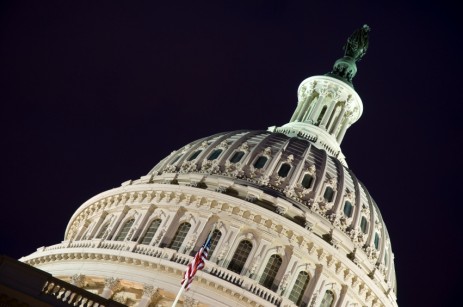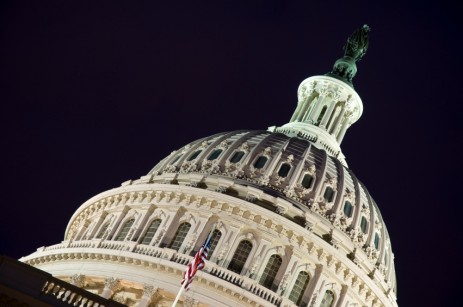 EPA standards can help business and drive innovation.Cross-posted from the World Resources Institute. This piece is written by senior associate James Bradbury.
EPA standards can help business and drive innovation.Cross-posted from the World Resources Institute. This piece is written by senior associate James Bradbury.
In the U.S. Capitol Visitor Center, I moderated a panel featuring representatives from businesses and public interest organizations: Paul Allen, senior vice president for corporate affairs and chief environmental officer at Constellation Energy, Dan Greenbaum, president of the Health Effects Institute, Franz Litz, senior fellow at WRI, and Dick Munson, senior vice president of public affairs at Recycled Energy Development. Rep. Jay Inslee (D-Wash.) opened the discussion.
This group of “strange bedfellows” had one thing in common: a strong interest in ensuring Congress does not extend the current period of regulatory uncertainty by preventing the EPA from using the Clean Air Act to regulate emissions. Panelists addressed several myths about the regulations often advanced by opponents of EPA action.
The first myth is that businesses and regulated industries are universally opposed to EPA standards that protect the public health and environment.
Paul Allen from the Baltimore-based utility Constellation Energy, a leading energy services company, stated, “Our view is that EPA is doing its best to follow the instructions, to play the game by the rules. We’re in an industry that is completely capable of responding to those rules. We expect that there will be reasonable flexibility in both the rules and enforcement guidelines.”
Allen pointed to two different periods in recent decades when the electric utility industry aptly demonstrated its ability to make rapid capital investment decisions by installing dozens of gigawatts of new power plant capacity over the course of just a few years.
“What’s important is that we get on with it,” Allen said.
Allen went on to discuss how existing state and federal regulations have led Constellation to make pollution control investments, resulting in jobs and economic benefits for his company. Unraveling the myth that EPA regulations will cost jobs, Allen said:
Constellation Energy has made investments in our largest coal-fired power plants, creating 1,600 job years for boilermakers and ironworkers and carpenters and master electricians and millwrights.
My own research on the U.S. manufacturing sector has found that installing efficiency-related pollution control upgrades could result in very substantial cost savings that would provide both immediate and lasting benefits to surrounding communities, both in terms of job security and environmental health.
Panelists also listed certainty — clear signals from the federal government on which regulations are happening, and when — as a critical reason for wanting pending EPA regulations to not be delayed beyond currently established timelines.
Dick Munson from Recycled Energy Development, a company that helps manufacturers convert wasted energy into electricity and heat, explained, “the more certainty we can have, the more business and American industry can respond.”
Allen agreed: “We are staunch believers in markets and price signals that markets deliver to people who are making very large capital investments in the electric power sector.”
Despite industry claims that EPA standards could be a burden on American companies, panelists countered that standards would help them develop new products and more efficient technologies.
“Let’s have faith in American innovation, for goodness’ sake!” said Munson.
In addition to the direct economic benefits that can be gained from EPA standards, Dan Greenbaum and Rep. Inslee pointed out the costs if the EPA does not act.
Greenbaum, an internationally recognized expert on the subject, provided an overview of the negative health effects tied to inefficient power plants and greenhouse gases, including asthma, heart disease, and cancer, each of which impose very significant hidden costs to society and a drag on the economy.
WRI’s Franz Litz also outlined how the EPA is acting within the bounds of the law and moving at a reasonable pace.
“The Clean Air Act is an instruction manual that previous congresses gave EPA. They did not give the EPA a blank check or a blank piece of paper to write any regulations they wanted. The EPA is expected to act reasonably.”
As panelists spoke, it was clear that they agreed with WRI’s research finding that well-designed EPA regulations can be both a win for the economy and for the environment.
As Allen summed up: “Companies have known for many years that these pollutants will be regulated. It’s not a surprise, it’s not a mystery, and it’s not something that needs necessarily to compromise the reliability of the U.S. electric power system.”




